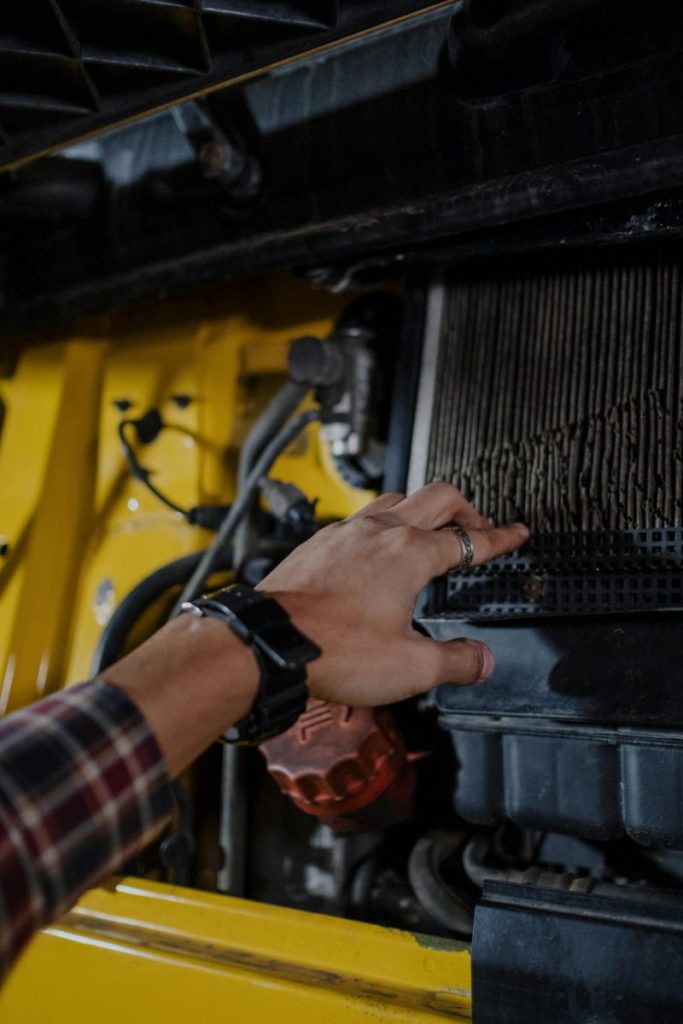Maintaining a golf cart may seem like a simple task, but there’s more to it than meets the eye. One important but frequently overlooked aspect of this maintenance is the regular changing of filters. Similar to the filters in your car or home’s HVAC system, the filters in your golf cart play a significant role in preserving its operation and longevity. This often underappreciated component serves as the frontline defense against harmful contaminants that could potentially compromise the performance of your golf cart.
We’ll take an in-depth look at the vital role of filters in golf carts, examine the problems that can arise from neglecting to change dirty filters, discuss the numerous benefits of regular filter changes, and provide guidance on the optimal frequency for changing them.
Our aim is to equip you with the knowledge and insights you need to ensure your golf cart remains in peak operating condition for years to come.
The Role of Filters in Golf Carts
Filters in a golf cart play a crucial role in maintaining the optimal performance of the vehicle. They serve as protective barriers that prevent unwanted particles and contaminants from entering vital systems of the cart.
There are three main types of filters in a golf cart: air, oil, and fuel. The air filter ensures that the air entering the engine is clean and free from debris which could potentially damage the engine. The oil filter helps to remove contaminants from the engine oil, which can wear the engine over time. Finally, the fuel filter ensures that the fuel entering the engine is clean and free from impurities.
Regularly checking and replacing these filters is essential to the longevity and efficiency of a golf cart.
The Impact of Dirty Filters
Problems caused by dirty air filters
Dirty air filters in a golf cart can cause a range of problems. When an air filter becomes clogged with dust, dirt, and other debris, it can restrict the airflow to the engine. This lack of air can make the engine work harder than it needs to, leading to decreased performance and fuel efficiency. Over time, this can result in significant wear and tear on the engine, potentially leading to costly repairs or even a complete engine breakdown.
Moreover, if the filter is not capable of trapping particles effectively due to being dirty, these particles can enter the engine and cause damage to its internal components. Therefore, maintaining a clean air filter is crucial for the optimal performance and longevity of a golf cart’s engine.
Problems caused by dirty oil filters
Dirty oil filters in a golf cart can lead to major issues. The oil filter’s role is to remove contaminants from the engine oil, which is crucial to prevent wear and tear on the engine components. When the oil filter becomes dirty or clogged, it can’t perform this function efficiently. As a result, dirty or contaminated oil may circulate within the engine, causing abrasive wear. This not only decreases the performance of the golf cart but can also lead to serious damage, potentially resulting in extensive repair costs.
In severe cases, a dirty oil filter could lead to complete engine failure. Therefore, regular replacement of the oil filter is crucial for maintaining the golf cart’s performance and prolonging the lifespan of its engine.
Problems caused by dirty fuel filters
Dirty fuel filters in a golf cart can create serious issues. Fuel filters are crucial for trapping impurities in fuel before it reaches the engine. A clogged or dirty fuel filter can lead to restricted fuel flow, causing the engine to starve for fuel which results in decreased performance and possible engine stalling. In addition, if the filter isn’t working effectively because it’s dirty, harmful impurities can make their way into the engine, causing damage to its internal components and eventually leading to engine failure. Therefore, regular inspection and replacement of fuel filters is essential for maintaining optimal performance and longevity of a golf cart’s engine.
The Benefits of Regular Filter Changes
Improved performance
Regular filter changes in a golf cart can significantly improve its performance. When filters are clean and functioning well, they allow for optimal airflow, oil flow, and fuel flow to the engine. This ensures that the engine operates smoothly and efficiently.
For instance, a clean air filter ensures the engine gets enough clean air for combustion, leading to a more responsive and efficient ride. Similarly, clean oil and fuel filters ensure the engine is not exposed to contaminants that could impede its performance. Therefore, regular filter changes are a simple yet effective way to enhance the overall performance of a golf cart.
Extended lifespan of the golf cart
Regularly changing the filters in a golf cart can significantly extend its lifespan. Filters play a crucial role in keeping the engine running smoothly by preventing contaminants from causing wear and tear. A clean air filter ensures the engine receives clean air for combustion, a clean oil filter prevents abrasive contaminants from circulating within the engine, and a clean fuel filter stops impurities in the fuel from causing harm.
When these filters are regularly replaced, the engine operates optimally, reducing unnecessary strain and damage over time. This maintenance practice leads to a longer-lasting engine and, by extension, a longer lifespan for the golf cart itself.
Cost savings in the long run
Regular filter changes in a golf cart can lead to significant cost savings in the long run. Maintaining clean filters reduces the risk of engine damage caused by contaminants, which can lead to expensive repairs or even the need for a complete engine replacement.
Furthermore, a well-maintained engine operates more efficiently, improving fuel usage and reducing the costs associated with poor fuel efficiency. Therefore, while there is a cost associated with purchasing and replacing filters, it is an investment that can save golf cart owners a considerable amount of money in the future.
How Often Should Filters Be Changed?
The frequency of changing each type of filter in a golf cart varies and is dependent on a number of factors such as usage and the environment in which the golf cart operates.
Generally, air filters should be checked and cleaned after every 25 hours of operation and replaced every year or after 100 hours of operation, whichever comes first.
Oil filters typically need to be replaced with every oil change, which is usually recommended after every 100 to 150 hours of operation or annually. Fuel filters should be replaced annually or after 100 hours of operation as well.
However, these are general recommendations and the specific maintenance schedule for your golf cart may vary based on the manufacturer’s guidelines, the cart’s usage, and the operating conditions. Therefore, it’s always a good practice to check the filters regularly and replace them as needed.
There are several signs that indicate a filter in your golf cart needs to be changed. For air filters, if you notice a decrease in the cart’s performance, such as struggling to reach full speed or a reduction in fuel efficiency, it may be due to a clogged air filter. Similarly, a dirty oil filter might be indicated by dark, dirty oil even soon after an oil change. If the golf cart’s engine starts to run rough or stall, it might be a sign of a clogged fuel filter. In addition, physical inspections can reveal if the filters are due for a change.
If the air filter is filled with dirt or the oil filter is excessively grimy, it’s time for a replacement. Fuel filters, on the other hand, may show signs of wear or damage such as cracks or leaks, signifying the need for a change. Always refer to the golf cart manufacturer’s guidelines for specific signs and intervals for filter replacements.
The importance of regular filter changes in golf cart maintenance cannot be overstated. Filters play a crucial role in the performance and longevity of a golf cart by protecting its engine from harmful contaminants. Regularly replacing the air, oil, and fuel filters can prevent a multitude of issues, from decreased performance and fuel efficiency to serious engine damage.
Regular filter changes can lead to improved performance, extending the lifespan of the golf cart, and significant cost savings in the long run. As such, golf cart owners should make filter changes a regular part of their maintenance routine. While the frequency of filter changes can depend on several factors, including usage and operating conditions, a general guideline is to check and clean air filters after every 25 hours of operation and replace them annually or after 100 hours of operation, whichever comes first. Oil and fuel filters typically need to be replaced annually or after 100 hours of operation as well.
Always refer to the manufacturer’s guidelines and watch for signs that your filters may need to be replaced sooner. Regular maintenance, including timely filter changes, is an investment that pays off in the form of a well-performing, long-lasting golf cart.


